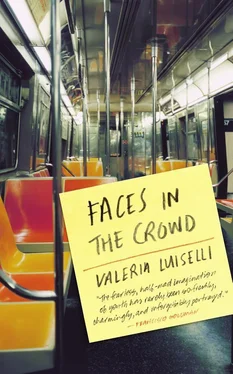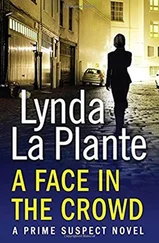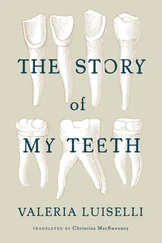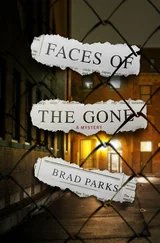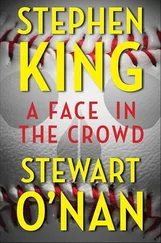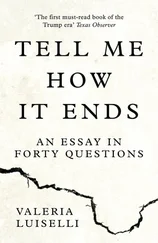Why do you always take my bucket out of the bathroom?
So your neighbors can’t hear me.
I don’t think they can.
So I can hear myself.
Dakota never answered a question directly.
*
My husband draws rapidly; he makes a lot of noise. His pencil scrapes on the paper, he sharpens it every five minutes with the electric pencil sharpener, starts a new piece of paper, walks around his drawing table. He constructs spaces and, as they appear on the sheet, names them: bathroom, spiral staircase, terrace, attic. He stops, sits down. Then he goes to his computer and reproduces the lines using a program that gradually makes the spaces three-dimensional. I can’t make spaces from nothing. I can’t invent. I only manage to emulate my ghosts, write the way they used to speak, not make noise, narrate our phantasmagoria.
*
Pajarote didn’t talk much. He lived in New Brunswick, a horrible town in New Jersey, and drove to Manhattan in his old car every Wednesday because he was taking a course at NYU on Thursday mornings. His real name was Abelardo, but everyone called him Pajarote — literally, big bird — after the Sesame Street character, whom he resembled in physical but certainly not mental stature. He was a philosophy student, and took life philosophically. The only complaint I ever heard him make was about the way non-Spanish speakers were always trying to put either a hard j or a wimpish h in the middle of his name. He spent every Wednesday night at my place. I liked sleeping there when he was around. He used to wrap a long, hairless arm around me. But we never made love. It was an unspoken pact that protected our friendship. Every Thursday, he’d get up early and buy bread and Coke in the supermarket on the corner. We would eat breakfast together without saying a word. One day I broke the silence and asked him what his course was about.
It’s to do with vagueness, he said, chewing a piece of bread.
Just that? Vagueness?
Well, vagueness and fuzzy temporal boundaries.
I thought it was a joke, I teased him a bit, but he said: It’s cutting-edge analytical philosophy. His classes that month would cover puzzles about temporary coincidence, where the example was a cat, now with a tail, now without a tail. Pajarote continued chewing as he was going on about cats and vagueness, so that small archipelagos of spittle and crumbs accumulated in the corners of his mouth.
Is it the same cat? he asked, after a long explanation that I’d stopped listening to. I nodded, and then said no, or that in fact I didn’t know. Perhaps it’s like Hemingway said: One cat just leads to another. Pajarote didn’t laugh. He never laughed. Or perhaps he did, but never at my jokes. He was more intelligent than me, more serious than me. He was very tall and had long, hairless arms.
*
That apartment gradually filled up with plants, silent presences that from time to time reminded me that the world required care and perhaps even affection. There were practically never any flowers. There were leaves, yes: some green and many yellow. I’d see a handful of withered leaves on the floor and feel guilty; I picked them up, put water in all the pots, but then forgot about them for another couple of weeks.
There’s nothing so ill advised as attributing a metonymic value to inanimate things. If you think the condition of a plant in a pot is a reflection of the condition of your soul, or worse, that of a loved one, you’ll be condemned to disillusion or perpetual paranoia.
*
That’s what White used to say. He didn’t have keys to my apartment. But he went there twice. On both occasions, after a couple of drinks, he told me the same story. There was a tree outside his house in which he was constantly seeing his dead wife. He didn’t actually see her, but he knew she was there. Like fear in a nightmare, like a sudden sadness that fills long afternoons. Every night, when he got home, he said good-night to her, to the tree, to her in the tree. He didn’t speak. He just thought about her as he passed the tree and grazed it with his fingertips. It was a way of saying goodbye, again, each time.
One night he forgot. He went into his apartment, brushed his teeth, and got into bed. Then he realized that he’d forgotten his wife. He was stricken with guilt and went outside again. He didn’t put on his shoes. He hugged the tree and cried until his socks, feet, and knees were soaked by the snow covering the street. When he went back inside, he didn’t take his socks off to sleep.
*
The boy asks:
What’s your book about, Mama?
It’s a ghost story.
Is it frightening?
No, but it’s a bit sad.
Why? Because the ghosts are dead?
No, they’re not dead.
Then they’re not very ghosty.
No, they’re not ghosts.
*
There are different versions of the story. The version I liked was the one White told me when we’d been working late in the office and had to wait over an hour for a train. Standing on the platform, listening for the shuddering in the interior of things produced by the imminent arrival of a moving train, he told me that one day, in that very station, the poet Ezra Pound had seen his friend Henri Gaudier-Brzeska, who had been killed in a trench in Neuville-Saint-Vaast a few months before. Pound was waiting on the platform, leaning against a pillar, when the train finally pulled in. The doors of the carriage opened and he saw the face of his friend appear among the people. In a few seconds, the carriage filled with other faces, and Brzeska’s was buried in the crowd. Shocked, Pound didn’t move for several moments, until first his knees and then his entire body gave way. Leaning his whole weight against the pillar, he slid down until he felt the concrete caress of the ground on his ass. He took out a notebook and began to write. That same night, in a diner in the south of the city, he completed a poem of over three hundred lines. The next day he reread it and thought it too long. He went back every day to the same station, the same pillar, to lop, cut, mutilate the poem. It had to be exactly as brief as his dead friend’s appearance, exactly as startling. After a month of work, removing everything extraneous, only two poignant lines survived, comparing faces in the crowd to petals on a dark bough.
*
Dakota and I met in the toilet of a bar called Café Moto. She was making up her face with a sponge when I went to the sink to wash my hands. I never wash my hands in public toilets, but the woman touching up the future face of Dakota with a sponge seemed to me unsettling and I wanted a closer look. So I washed my hands.
*
The publishing house was at 555 Edgecombe Avenue but I spent half the week in libraries around the city, looking for books by Latin American writers worth translating or reissuing. White was sure that, following Bolaño’s success in the American market some five years before, there would be another Latin American boom. A paid passenger on the runaway train of his enthusiasm, I brought him a backpack full of books every Monday, and spent my working hours writing detailed reports on every one of them. Inés Arredondo, Josefina Vicens, Carlos Díaz Dufoo Jr., Sergio Pitol; nothing caught his interest.
Weren’t you a friend of Bolaño? White shouted from his desk (I worked at a small desk beside his, so the shouting was unnecessary but it made him feel like a real editor). He took a long drag on his cigarette and continued in the same mode: Haven’t you got any letters from him or an interview or something we could publish? he shouted. No, White, I never met him. Shame. Did you hear that, Minni? We have the honor of working with the only Latin American woman who wasn’t a friend of Bolaño. Who’s he, chief? asked Minni, who never knew anything about anything. He’s the most popular dead Chilean writer ever. His name gets dropped more often than coins into a wishing well.
Читать дальше
